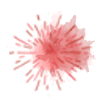In the Spotlight: Roswell Park Cancer Center on Perspective Shifting
on 2019/05/09
category Looking, Perspective Shifting, Spotlight

A Conversation with Kara Eaton Weaver, Executive Director of Patient and Family Experience, and Michele Benzin, Program Coordinator
As we close out the theme of LOOKING, we are thrilled to spotlight a true exemplar of Perspective Shifting: Roswell Park Cancer Institute. Kara Eaton Weaver and Michele Benzin provide a new lens for bringing The Experience Lab’s Essentials elements to life and activating the principle of Perspective Shifting.
What does the principle of Perspective Shifting mean to you at your organization?
Kara Eaton Weaver (KEW): Perspective Shifting is at the core of the patient Experience. We still tend to make decisions based on what a department needs or what a physician may want rather than having the patient consistently at the center. It is one of the most important topics we are facing as a leadership team – to truly LOOK and see. It takes walking in their shoes and seeing the Experience through their eyes to get people on the same page. For example, when we consider the millennials who will be cancer patients, where are they coming from and how can we meet their needs where they are at?
Michele Benzin (MB): Perspective Shifting has everything to do with what we are trying to accomplish. We want to get our team members to realize that they may be having a terrible day and yet how are our patients feeling? What are they Experiencing? How would we like to be treated and talked to? From housekeeping to executives, we are working to get everyone on the same page.
How do you at Roswell Park apply this principle?
KEW: Perspective Shifting is the proposed topic for our July “Spark Program,” our internal engagement Experience designed and created for leaders and team members. Rather than executive rounds, we plan to have leaders take on the role of team members. They will shadow and assist. Our leaders will LOOK at wayfinding and signage among other important issues. They will help the transport teams move patients so that they can Notice how challenging it is for patients to get around with crutches and wheelchairs (no automatic doors for example). We feel it’s important for our leaders to be a part of seeing the change so it’s becomes more than just approving the cost for a new door. They are a part of the solution.
MB: We also continue to experiment with the Echo Dot, a curiosity from the Perspective Shifting Experience Essentials Action Kit, to engage our patients and families in the Bone Marrow Transplant division. We hit a few small snags with our IT department switching from a public WIFI to a private network, however, we are solving for that with new innovations. And our patients continue to LOVE it. We share the new features Alexa offers – from reading Stories to playing music to answering health care questions. We also have a holder for the Dots to hang on the wall so that no one touches it and have Clorox wipes at the ready. Infection control wanted to ensure we solved for that.
What advice do you have for our Lab Partners?
KEW: The Action Kits – there are a lot of them. It can feel overwhelming. I felt like I had an obligation to do something right away. All the books were amazing; I felt completely flooded with great information and it actually took finishing the year to say, “wow look at all that we have: the kits, Sparks, materials. What do we want to do?” Soak it all up, step back, think about it, let it all in. You’ll have so many ideas and not enough hours to implement them. Yet the cost for us to bring these ideas to life is minimal and the impact is huge. We have fresh flowers in our lobby, we hosted a Mother’s Day tea for our patients and guests, and everyone from local vendors to team members are stepping up to help us be successful.
MB: Whenever I would open a kit, I’d ask myself, “what can we do with this?” How might I implement a singing bowl with my work for my patients? I’d take a minute to think about how it could make sense – not literally, but an idea that could work in my day-to-day practice.










